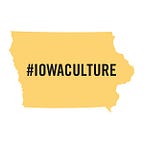Iowa: A First-in-the-Nation History
Each caucus season Iowa receives national coverage about our state and its role in winnowing the presidential field. Caucus season provides Iowans the opportunity to showcase the unique character of our state and how seriously we take the civic activity of being first in the nation.
In addition to having the first in the nation caucus every four years, Iowa and its people have led the nation in many ways long before 1972. In honor of being first in the nation once again today, let’s take a look back through history at some other notable events when Iowa led the nation.
1839: In the Matter of Ralph, the Iowa Territorial Supreme Court ruled a slave residing in Iowa could retain his or her freedom.
1846: By the time Iowa became a state, the territorial legislature had already allowed married women to own property due .
1851: Iowa legalized interracial marriage, more than a century before the U.S. Supreme Court guaranteed this right for all Americans in the ruling Loving v. Virginia (1967).
1855: The University of Iowa is the first state university in the nation to admit men and women on an equal basis.
1868: In Clark v. Board of Directors (Muscatine, Iowa), 86 years before Brown v. Board of Education, the Iowa Supreme Court ruled schools in Iowa could not be segregated.
1869: Iowa was the first state in the nation to allow women to join the bar, which led to Iowan, Arabella Mansfield of Mount Pleasant, being the first female attorney in the nation.
1871: Cornell College in Mount Vernon, Iowa, was the first college in the nation to promote a woman, Harriette Jay Cooke, to a full professorship with the same salary as her male counterparts.
1871: Ada E. North became the first woman in the nation to be appointed to statewide office. She was appointed as the Iowa State Librarian.
1873: The University of Iowa is the first state university to award a law degree to a woman, Mary B. Hickey Wilkinson.
1875: Emma Haddock of Iowa City became the first female in the nation to practice law before a federal court.
1879: Alexander Clark, Jr., a student at the University of Iowa, is one of the first African-Americans to earn a law degree from a state university.
1890: John Froelich, of Giard, Iowa, invented the first gasoline powered tractor. Later in 1903, the first commercially successful tractor powered by an internal combustion engine, the Hart-Parr tractor, was created Charles City, Iowa.
1900: Carrie Chapman Catt was elected the first president of the National Woman Suffrage Association.
1905: George H. Woodson, of Buxton, Iowa, co-founded the Niagara Movement. The association later became the National Association for the Advancement of Colored People (NAACP).
1908: One of the first women’s suffrage parades in the nation was held in Boone, Iowa, and was organized by Rowena Edson Stevens and Rev. Eleanor Elizabeth Gordon.
1914: Jessie Field Shambaugh of Shenandoah, Iowa, organized 4-H and also designed the original clover emblem.
1917: Fort Des Moines was the first site in the nation to train the first officer candidate class of African Americans.
1920: Key leader of the women’s suffrage movement, Carrie Chapman Catt, founded the League of Women Voters upon the ratification of the 19th Amendment.
1927: Otto Frederick Rohwedder, a native of Davenport, Iowa, invented the first sliced bread machine.
1934: The first mosque in the nation was built in Cedar Rapids, Iowa — now known as the Mother Mosque of America.
1935: After years of developing hybrid seed corn, Henry A. Wallace (U.S. Secretary of Agriculture from 1933–1940 and Vice President under Franklin Roosevelt) founded the world’s first and largest hybrid seed company, Pioneer Hi-Bred Corn Company in Johnston, Iowa.
1935: Union leader and former miner John L. Lewis of Lucas, Iowa, founded the Committee for Industrial Organization to help protect the rights of workers. In 1938, he led its reorganization as the Congress of Industrial Organizations (CIO). The CIO joined with the American Federation of Labor in 1945 to become the AFL-CIO.
1939–1942: The first computer (the ABC) was invented at Iowa State University by physics professor John Vincent Atanasoff and his graduate student Clifford Berry.
1949: In State v. Katz, the store manager of a downtown Des Moines soda fountain, who refused service to two African Americans, was tried and convicted under a state statute originally passed in the late 1880’s making it a crime to refuse service on the basis of race.
1972: Iowa becomes the first in the nation to caucus for President of the United States.
1986: Dr. Norman E. Borlaug, the Father of the Green Revolution and native of Cresco, Iowa, founded The World Food Prize to recognize individuals who have advanced human development by improving the quality, quantity or availability of food in the world. He is the first and only person in the nation to receive the trifecta of humanitarian awards — Nobel Peace Prize, Congressional Gold Medal and Presidential Medal of Freedom, along with the National Medal of Science.
1990: Iowa Senator Tom Harkin co-authored the Americans with Disabilities Act.
2007: Iowa became the second state in the nation to allow full marriage equality for same-sex couples.
2008: Astronaut Peggy Whitson of Ringgold County, Iowa, became the first woman to command the International Space Station and has spent more days in space than any other woman.
2015: Governor Terry E. Branstad became the nation’s longest serving governor.
Iowa has been a leader throughout United States history and is proud of all of our “firsts in the nation.” As you head out today to participate in the 12th First in the Nation Caucus, be proud of your contribution to Iowa as the first in the nation state.
